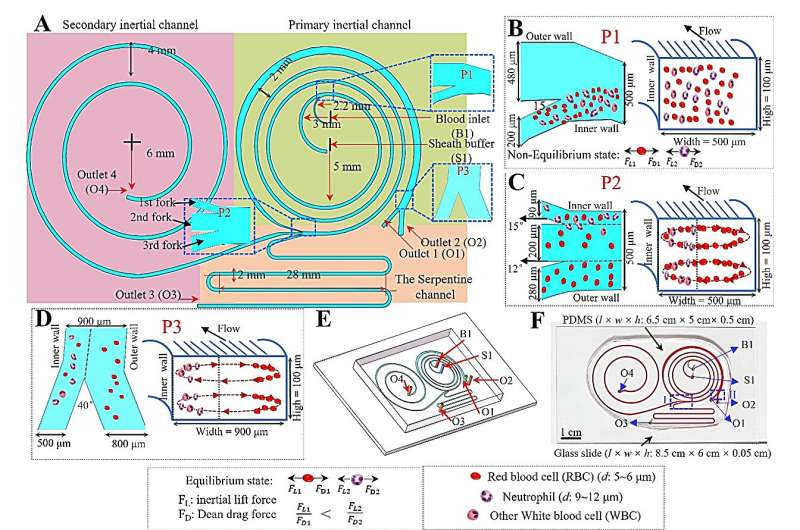A research team from the Hefei Institutes of Physical Science of the Chinese Academy of Sciences and the First Affiliated Hospital of Anhui Medical University has developed a microfluidic platform for label-free sorting and functional analysis of neutrophils in sepsis patients. Their study is published in Analytical Chemistry.
The researchers designed a two-part system. The first component, a cell-sorting chip (CS chip), can extract white blood cells from a small blood sample (≤50 μL) with high purity (>80%) and viability (>90%). The second, a deformation and chemotaxis chip (CD² chip), evaluates neutrophil motility by measuring deformation time (TD) and migration time (TM). Integrated into a single platform, the system automates both sorting and motility assessment in just 30 minutes.
Optimization through structural design and COMSOL simulations ensured gentle flow conditions, preserving cell integrity. Experiments confirmed stable chemical gradients, reproducible sorting performance, and consistency across operators. In clinical tests, neutrophils from sepsis patients showed markedly impaired motility, with prolonged TD and TM compared to healthy individuals.

